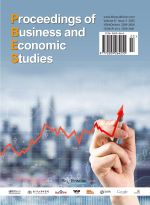Abstract
This study is based on the Extended Theory of Planned Behavior (ETPB) and focuses on the elderly population in the main urban area of Chongqing to explore their intentions and influencing factors regarding health and wellness tourism behavior. Data was collected through questionnaire surveys and field research, and SPSS 26.0 and Amos 29.0 software were used for reliability, validity analysis, and structural equation modeling testing. The study shows that behavioral attitude, perceived behavior control, and the context of health and wellness tourism have a significant positive impact on the elderly’s intentions regarding health and wellness tourism behavior, while the influence of subjective norms is not significant. In addition, subjective norms have a significant positive effect on behavioral attitudes and perceived behavioral control. Based on the research conclusions, suggestions are made to strengthen the behavioral intention of elderly tourists to participate in health and wellness tourism.
References
Goodrich JN, Goodrich GE, 1987, Health-Care Tourism—An Exploratory Study. Tourism Management, 8(3): 217–222.
Hall CM, 1992, Adventure, Sport and Health Tourism, Belhaven Press, London.
Wang Z, 2009, International Tourism Island: Hainan Needs to Develop Health and Wellness Tourism as a “Recipe.” Today’s Hainan, 2009(12): 12.
Du F, 2021, Research on Behavioral Intentions in Health and Wellness Tourism Based on an Integrated Model of PMT and TPB, dissertation, Sichuan Agricultural University.
Peng X, 2022, Research on Behavioral Intentions of Elderly People in Health and Wellness Tourism Based on the TPB Model, dissertation, Sichuan Agricultural University.
Sun Q, 2023, Research on the Influencing Mechanism of Elderly People’s Health and Wellness Tourism Behavior in Zhoushan City Based on the Theory of Planned Behavior, dissertation, Zhejiang Ocean University.
Zhang S, 2021, Concept Application of Guangxi Rural Tourism Characteristic Cuisine and Health Tourism Development—Commentary on “Rural Tourism Planning and Development.” Food Science and Technology, 46(01): 322–323.
Yang Y, Du S, 2025, Suitability Evaluation of Mountain Health and Wellness Tourism Space—An Empirical Study of Yunnan Based on Random Forest Algorithm. Mountain Research, 43(01): 46–58.
Zhao Y, Sun X, 2020, Research on the Innovative Development of Health and Wellness Tourism Industry in China’s Coastal Areas—Taking Qinhuangdao City as an Example. Urban Development Studies, 27(06): 24–28.
Han Q, 2022, Research on the Impact of Thrift and Cognition on Forest Health and Wellness Tourism Intentions, dissertation, Liaoning University.
Ajzen I, 1985, Action Control: From Cognition to Behavior, Springer, Heidelberg.
Li X, Li Z, Song C, et al., 2021, Research on the Influencing Mechanism of Virtual Tourism Behavior Based on the Theory of Planned Behavior. Tourism Tribune, 36(08): 15–26.
Xiang P, 2023, Research on Tourists’ Willingness to Consume Cultural Tourism at Night Based on the Theory of Planned Behavior, dissertation, Jiangxi University of Finance and Economics.
Liu J, 2023, Research on Cruise Tourism Behavioral Intentions Based on the Extended Theory of Planned Behavior, dissertation, Hainan University.
Zheng C, 2025, Research on the Impact of Tourism Experience on Tourist Behavioral Intentions Based on the Extended TPB Model. Green Technology, 27(05): 222–228.
Zhang C, 2021, Research on the Mechanism of Ecotourism Perceived Value’s Impact on Behavioral Intentions, dissertation, China University of Mining and Technology.
Li J, Jiang S, 2022, Research on the Influencing Mechanism of Black Tourism Behavioral Intentions Based on the TPB Model—An Empirical Analysis of Tourism to the Memorial Hall of the Victims of the Nanjing Massacre by Japanese Invaders. Journal of Anhui University (Philosophy and Social Sciences Edition), 46(05): 126–134.
Xie T, 2016, Research on Customers’ Behavioral Intentions to Choose Green Hotels—Based on the Theory of Planned Behavior. Tourism Tribune, 31(238): 94–103.
Zhou S, 2023, Research on the Influencing Factors of Tourists’ Behavioral Intentions in Health and Wellness Tourism Based on the Theory of Planned Behavior. Western Tourism, (10): 33–35 + 39.
